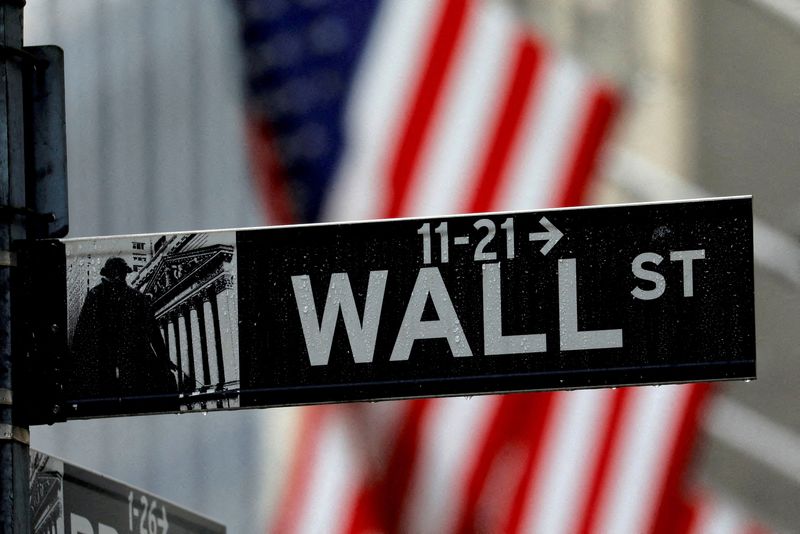By Jamie McGeever
(Reuters) - A look at the day ahead in Asian markets from Jamie McGeever.
A U.S. or global recession in 2023 may not be most people's base case forecast, but the risks are sufficient enough for investors to be positioning accordingly as this year draws to a close.
Yet equity and bond markets appear to be sending conflicting signals.
Wall Street is determined to bounce on any dip, and is up 15% from the October low. The VIX index of implied volatility hit a three-month low of 21.45 on Tuesday and has now fallen five days in a row, the longest run of declines since May.
The earnings growth forecast for next year continues to decline, but at around 4% it is still in positive territory. Valuations have come down but are still above long-run averages.
Equities have not priced in the damage higher interest rates will do. Admittedly, Asian stocks have cheapened much more in nominal and relative terms, perhaps in part due to the huge FX valuation mismatch against the dollar this year.
But valuations are still around historical averages.
MSCI Asia ex-Japan - valuations https://fingfx.thomsonreuters.com/gfx/mkt/klpygkqwgpg/MSCIVAL.jpg
The MSCI Asia ex-Japan index of realized volatility is more than twice the average of the past 20 years, and has only been higher during three episodes over the last 10 years - China's mini-devaluation in 2015, the COVID-19 pandemic in 2020, and Russia's invasion of Ukraine this year.
MSCI Asia ex-Japan - realized volatility https://fingfx.thomsonreuters.com/gfx/mkt/zjpqjknbwvx/MSCIVOL.png
But if Wall Street continues to push higher, as it did again on Tuesday, Asia will follow.
Compare that to fixed income, where the entire U.S. yield curve from one month out to 30 years is inverted, some parts by the most in 40 years. Nearly 50 bps of Fed rate cuts in the second half of next year is priced in.
That is screaming recession.
Bond market volatility has come off a bit in recent weeks, but remains historically elevated - the three-month U.S. Treasury 'MOVE' index is higher today than the pandemic peak of March 2020.
In essence, 'risk free' assets are pricing in the worst, risk assets aren't. Bond investors are paid to be gloomy so usually price in the worst, while stock investors are paid to be upbeat and often wake up to crises after it's too late - witness the Great Financial Crisis.
Who is on the right track - stocks or bonds?
Three key developments that could provide more direction to markets on Wednesday:
- FOMC minutes of Nov. 1 to 2 meeting
- U.S., euro zone, UK, Australian flash PMIs (November)
- University of Michigan U.S. inflation expectations (November)
